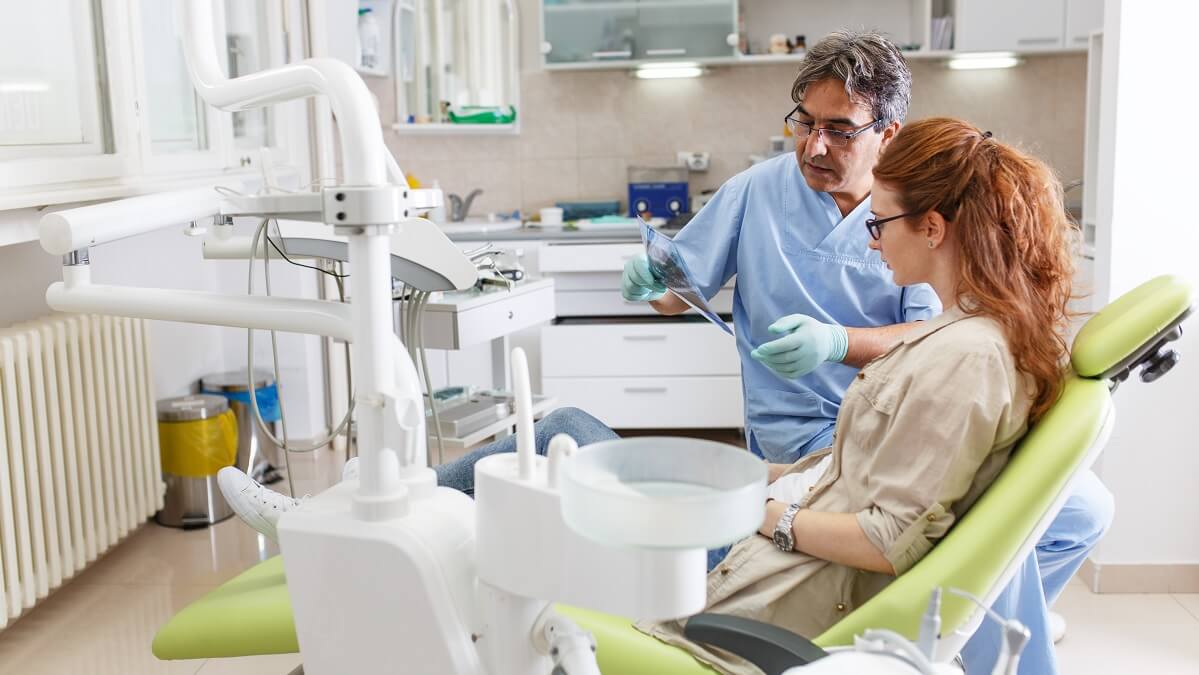Your dentist wants to know more about your health, and it’s all for your own safety.
A visit to the dentist often strikes fear into our hearts, but it’s possible to minimise your distress and maximise your outcomes by fully disclosing any complementary medicines you take before any procedures.
The Australia Dental Association (ADA) is urging patients to be more open about any alternative medications and supplements they may be taking following two studies that detail the increased risk of post-operative bleeding.
Read: Is avoiding dementia as simple as brushing your teeth?
The studies show that certain supplements and herbal remedies such as turmeric, ginger, garlic, ginkgo biloba, ginseng, glucosamine, evening primrose oil and fish oil have all been identified as increasing the risk of post-operative bleeding.
There are also increased bleeding risks from some prescription medications, such as antidepressants, non-steroidal anti-inflammatory drugs and blood thinners. Risks are also heightened when anti-clotting drugs interact with other medications and even something as simple as aspirin.
ADA president Dr Stephen Liew said it was fundamental that patients disclose all their medications, even if they were not prescription.
“Dentists sometimes treat people without knowing the full range of prescription, complementary or over-the-counter medications patients are taking. Many Australians aren’t aware of the importance of sharing this vital information with their clinician,” Dr Liew said.
Read: How to lower cholesterol without changing your diet
“It also emphasises the reason dentists take a full medical history during the patient’s first visit, where as much information as possible is provided to them so they get the full picture – including family history, past operations and procedures, illnesses and current and previous medications.
“This allows your dentist to provide safe and personalised care. It’s about an open and trusting relationship between clinician and patient – and that being as transparent as possible is for their own benefit.
“So we’re asking people to come to their dental appointments armed with as much information as they can to help with their overall experience.”
All ADA members receive regular training and updates on medicines and supplements and have access to a consultant pharmacist who provides a risk assessment.
“Sometimes that may mean advising the patient to come off a certain medication for a period – in consultation with their doctor – in the run-up to a dental procedure that could result in bleeding,” Dr Liew said.
There are several other health changes about which you should tell your dentist.
Allergies
You don’t just get one set of allergies for life. While many of us discover our allergies early on in life, we also often develop a few later on.
I have suffered from hay fever for as long as I can remember, but became allergic to cats in my 20s and now seem to have a banana allergy.
Banana allergies don’t seem like a big deal for a dental appointment – they are hardly going to make you eat a banana during your visit – but they can be linked to latex allergies, which are certainly a concern.
According to Healthline, some proteins in the rubber trees that produce latex are known to cause allergies, and they are similar to the proteins found in some nuts and fruits, including bananas. This syndrome is known as latex-food syndrome or latex-fruit allergy.
So, if you have any new allergies, be sure to let your dentist know.
Read: How to lower cholesterol without changing your diet
Bacterial infection
Bacterial infections can travel through your whole body and increase the risks of oral infection or tooth decay. You must tell your dentist about any medications you are taking for it.
Surgeries
Surgeries dramatically increase your risk of infection, but you also need to let your dentist know if you have an upcoming surgery and any medications you are taking in preparation for it.
Heart health diagnosis
Many dental medicines and procedures can affect cardiovascular health and cardiovascular disease can also make you more prone to oral disease such as periodontal disease.
Drinking and smoking
Drinking and smoking put you at a much higher risk of oral disease, but the amount is important. One or two drinks a week probably won’t make much difference, but you should let your dentist know if you are drinking every day. Similarly with smoking.
Cancer
Most cancers won’t affect your dental treatment, but some will. You should disclose if you have recovered or are being treated for oral cancer, leukemia and pancreatic cancer. Also if you are on chemotherapy or are having radiation.
Does your dentist update your health details? Do you divulge any supplements you’re taking? Why not share your experience in the comments section below?

